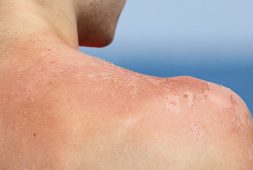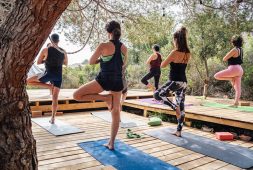
In April of last year, a study revealed a fascinating discovery: older men between the ages of 50-72 were able to reduce their biological age by an impressive 3.2 years through an 8-week program. Surprisingly, this transformation was not achieved through a magical pill, miracle cure, or obscure herb from a distant land. Instead, the program focused on making six relatively simple changes to the participants’ diet and lifestyle, with the primary aim of altering their epigenetics.
The six changes included adopting better sleep habits, ensuring a minimum of 7 hours of sleep per night, incorporating phytonutrient powder supplements containing polyphenols and curcumin, practicing a 10-minute meditation or breathing exercise twice daily, following a 12-hour eating window (e.g., from 8 a.m. to 8 p.m.), taking a probiotic supplement containing Lactobacillus plantarum, and engaging in 30 minutes of exercise per day for 5 days a week, at an intensity of 60-80% of their maximum heart rate.
The study’s main goal was to influence “epigenetics,” which can be described as the human body’s ability to adapt in response to life’s conditions. Although epigenetics cannot change us into different species, they allow certain populations like Sherpas in the Himalayas and indigenous Indonesians to adapt to extreme environments. Additionally, epigenetic changes can influence various aspects of our lives, such as how babies conceived during periods of famine may be more predisposed to conserving glucose throughout their lives.
Furthermore, epigenetics play a crucial role in the aging process. Some epigenetic changes can accelerate aging, while others can slow down or even reverse it, which is what longevity researchers refer to when discussing “reverse aging” claims.
Aging in Today’s Terms
In recent years, certain countries, including the U.S., have experienced a decline in life expectancy for the first time since World War II. This decline has raised concerns due to ‘aging’ being the primary risk factor for diseases, while ‘disease’ itself ranks as the second-highest risk factor. Consequently, there is a significant motivation to address both factors and minimize their impact.
It has been suggested that by intervening in these aspects, there could be a remarkable $7 trillion reduction in medical expenses over a span of 50 years. Remarkably, this savings estimate slightly surpasses the projected savings associated with limiting global temperature rise to 2°C.
The researchers’ main focus was on modifying epigenetics through methylation, a concept that requires a brief explanation.
“Currently, the best biochemical markers of an individual’s age are all based on patterns of methylation,” the researchers had written. In a recent radio interview, lead author Kara Fitzgerald elucidated that methylation involves the attachment of a methyl group to specific regions of the DNA-containing chromosomes.
As life evolved, it discovered the widespread utility of methyl groups, leading to the emergence of countless processes that involve them. One prominent example is gene expression, referring to the extent to which a gene influences our bodies and overall health. Evolution has given rise to possibly millions of such processes that rely on methyl groups.
“Of 20+ million methylation sites on the human genome, there are a few thousand at which methylation levels are tightly correlated with age,” the authors write. They also added that a DNA clock that measures methylation will be more accurate at predicting an individual’s risk for mortality than chronological age.
The diet remained largely unchanged from the standard one, except for a reduction in carbohydrate intake. The personalized recommendations focused on a predominantly plant-based diet, prioritizing low-glycemic fruits and substituting proteins with nutrient-rich alternatives such as beef liver and eggs. Participants were also advised not to eat anything between 7 p.m. and 7 a.m. the following morning. The complete diet plan can be found on their website.
The study aimed to explore the potential outcomes of a multifaceted approach in older individuals with no existing health risks and generally good well-being.
“It took us a long time to run the study because we did some pretty hefty screening,” Fitzgerald said on Revolution Health Radio, “so we can reverse bio-age in healthy individuals, there’s just no doubt in my mind that using these interventions in individuals with various diseases we should see more significant change”.
Fitzgerald emphasizes the significance of a key aspect in the study – the weekly appointment of a nutritionist, who not only oversaw the correct implementation of exercise and meditation following a predetermined plan but also played a vital role in the overall process.
Other than a reduction of 25% in mean triglycerides and total cholesterol, little else changed in the control group.
What makes this finding truly exciting is its relative simplicity. The probiotic and phytonutrient supplements were straightforward additions, and the exercise component merely required adherence to minimum government recommendations. While some individuals might struggle to find 20 minutes a day for meditation, the trade-off for reducing biological age by 3.2 years seems quite reasonable.



